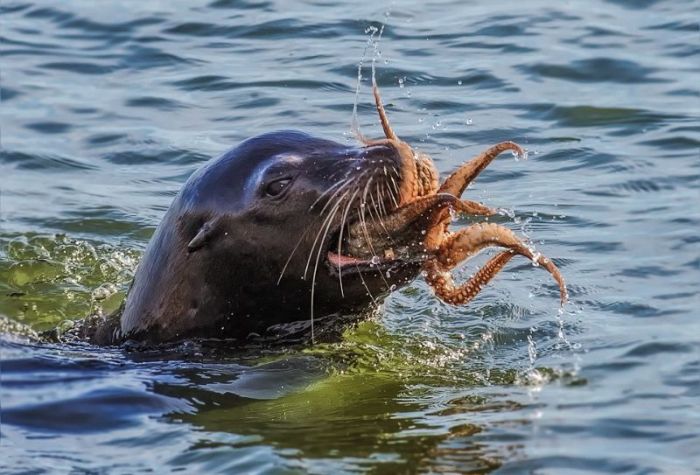|
|
Seal Having An Octopus Dinner
|
An octopus has a highly complex nervous system, only part of which is localized in its brain. Two-thirds of an octopus's neurons are found in the nerve cords of its arms, which have a remarkable amount of autonomy. Octopus arms show a wide variety of complex reflex actions arising on at least three different levels of the nervous system. Unlike vertebrates, the complex motor skills of octopuses in their higher brain are not organized using an internal somatotopic map of its body. Some octopuses, such as the mimic octopus, will move their arms in ways that emulate the movements of other sea creatures.
In laboratory experiments, octopuses can be readily trained to distinguish between different shapes and patterns. They have been reported to practice observational learning, although the validity of these findings is widely contested on a number of grounds. Octopuses have also been observed in what some have described as play: repeatedly releasing bottles or toys into a circular current in their aquariums and then catching them. Octopuses often break out of their aquariums and sometimes into others in search of food. They have even boarded fishing boats and opened holds to eat crabs.
In some countries, octopuses are on the list of experimental animals on which surgery may not be performed without anesthesia. In the UK, cephalopods such as octopuses are regarded as honorary vertebrates under the Animals (Scientific Procedures) Act 1986 and other cruelty to animals legislation, extending to them protections not normally afforded to invertebrates.
|
|









